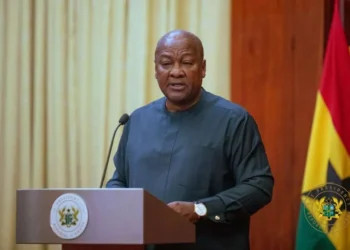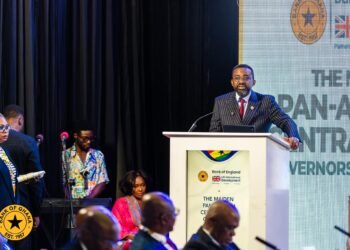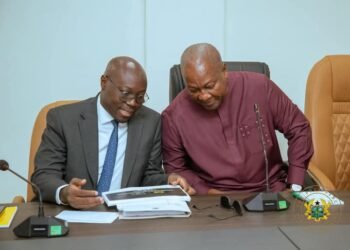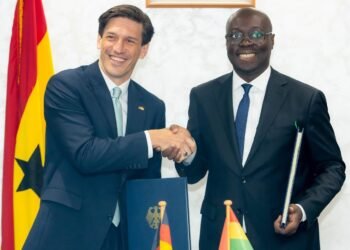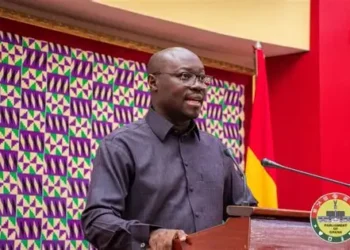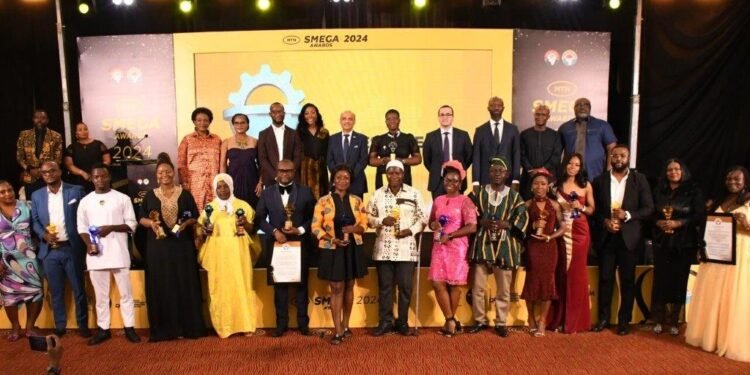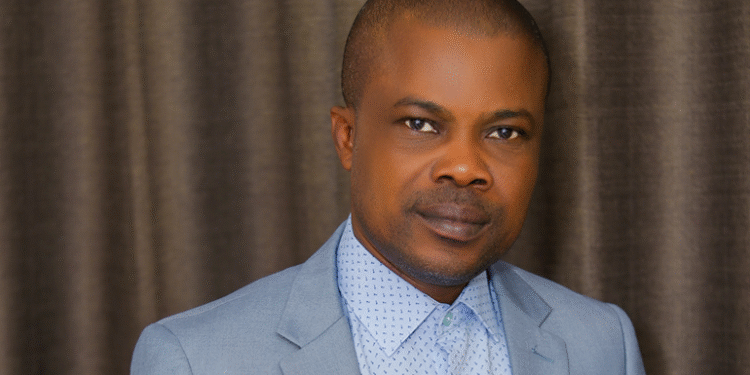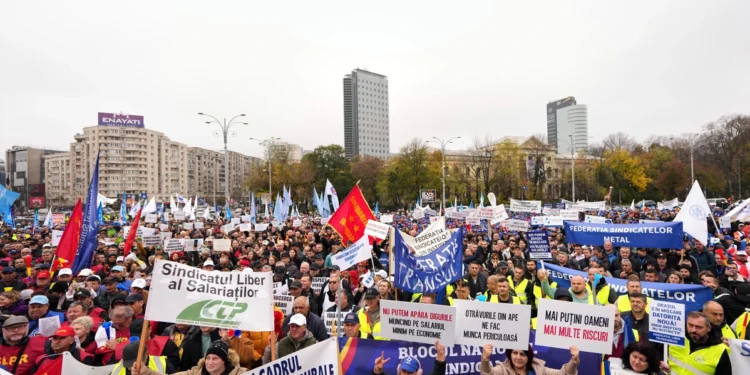Dr. Cassiel Ato Forson, the Minister of Finance, has assured Ghanaians that the 2026 Budget will present the next step in the government’s reset agenda.
The Ministry of Finance, after extensive engagement with Ghana’s economic stakeholders such as civil society organizations (CSOs), traders, representatives from banking and non-banking financial institutions, think tanks, professional bodies, trade organizations, social partners, faith-based organizations (FBOs), academia, and various associations and organized groups, is set to present the 2026 Budget, disclosing the government’s economic policy for the next year.
The Minister of Finance declared his readiness for the 2026 Budget reading in Parliament tomorrow at 2pm, as approved by the Speaker of Parliament.
“Ghana takes the next bold step in resetting for growth, jobs, and economic transformation.
“Budget 2026 — the blueprint for a stronger, more inclusive future.”
Dr. Cassiel Ato Forson
According to Dr. Ato Forson, the 2026 Budget will lay the foundation for a prosperous Ghana while taking all Ghanaians along the development treadmill.

Parliament’s Readiness
Earlier on, Dr. Ato Forson, in his capacity as the Minister of Finance, proposed November 13 for the reading of the 2026 Budget, subject to Parliamentary approval.
The Speaker of Parliament, Rt. Hon. Alban Kingsford Sumana Bagbin subsequently approved the said date and announced it to Parliament.
“Honorable members, I have a correspondent confirming the date that the Minister for Finance will appear before the House to present the 2026 Budget Statement of His Excellency, President John Dramani Mahama, on Thursday, 13th November, 2026.”
Rt. Hon. Alban Kingsford Sumana Bagbin
On Tuesday, November 11, the Speaker addressed the House that the Budget presentation will be done in accordance with Article 179 of the 1992 Constitution, which mandates the government to lay before Parliament its revenue and expenditure plans for the upcoming financial year, 2026.
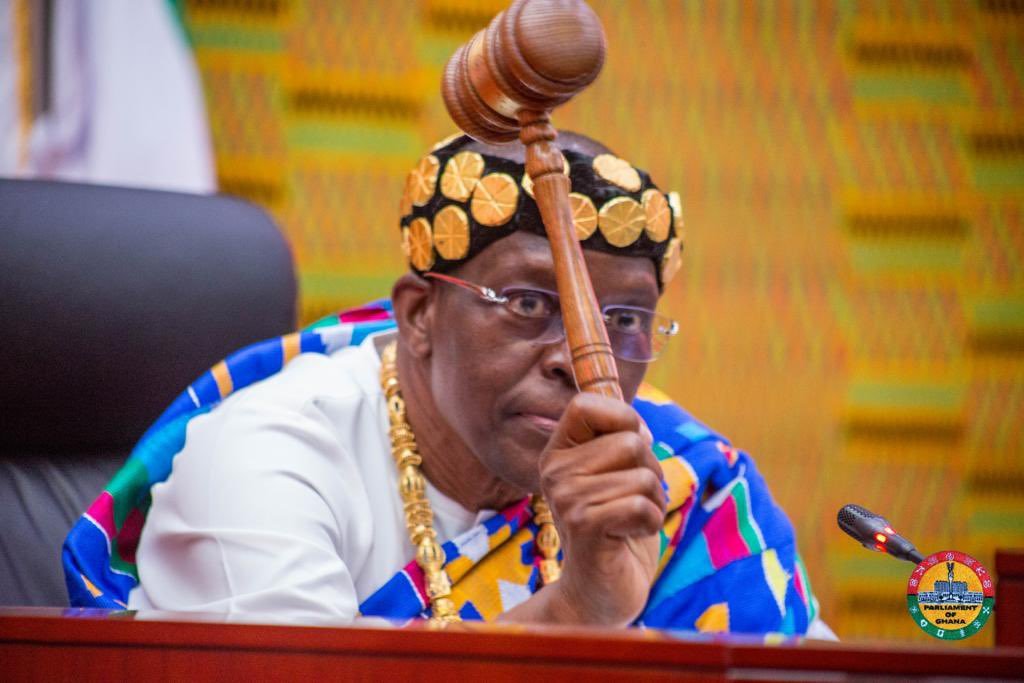
The Majority Leader, Hon. Mahama Ayariga, on the floor of the House, confirmed the date while presenting the explanatory memorandum on the business statement for the fourth week ending Friday, November 14, 2025

Budget Statements in Ghana
The tradition of submitting an annual Budget statement began in the 1990s when Ghana began constitutional rule and economic reforms. However, presentation of the Budget in Parliament began in 2008 and has since become a routine that has been spelt out in the Public Financial Management Act, 2016 (Act 921), now amended.
The annual Budget reading in Ghana by the Minister of Finance is one of the symbols of the country’s democracy and market-oriented economic strategy to cover macroeconomic stabilisation, structural reform, and poverty reduction.
The process involves a presentation, approval, implementation, and parliamentary oversight. The Budget reading is a requirement of the government to present a comprehensive financial plan and economic policy for the upcoming financial year to Parliament for approval.
The Budget covers critical areas such as Ghana’s economic performance (GDP growth rate, inflation, and public debt levels), fiscal policy objectives and targets (fiscal deficit and gross international reserves targets), revenue measures (existing tax policies and non-tax revenue collection measures), expenditure plans and resource allocation (for the sectors and Ministries, Departments, and Agencies), debt management strategy, and key policy initiatives (economic growth, creating jobs, and addressing social challenges).
The Budget reading process is to ensure transparency, accountability, public dialogue, and legislative approval. Therefore, the 2026 Budget will fulfill the above critical parameters.
2026 Budget Statement Expectation
Experts, Economists, research firms, the private sector, the informal sector, and Ghanaians have all voiced out their expectations on various platforms.
With the current macroeconomic stability and improvements in the key economic indicators, like single-digit inflation and currency appreciation, the main expectation of Ghanaians is how these gains can be sustained through policies and actions.

A Ghanaian named “David Aidoo FCCA CITG MBA PMDPro BIDA FMVA” on LinkedIn shared the following questions ahead of the 2026 Budget, on his handle:
“Will the government maintain fiscal discipline and keep the deficit within the #FiscalResponsibilityAct threshold?”
“How will Ghana sustain #debtreduction efforts after restructuring and reopening the domestic bond market?”
“What strategies will be introduced to mobilize #domestic #revenue without overburdening taxpayers?”
“Will the #BIGPUSH infrastructure program continue, and how will #PPPs be leveraged to close the country’s $45 billion #infrastructuregap?”
“How will amendments to key laws like the #PFMAct and #PetroleumRevenueManagementAct shape resource allocation?”
Many other Ghanaians have asked questions reflecting their expectations on the 2026 Budget reading. According to the Minister of Finance, this Budget will restore confidence in governance in Ghana, drive growth, ensure transparency, and present hope.
The budget, once presented, will be debated by Parliament before the approval process begins.





